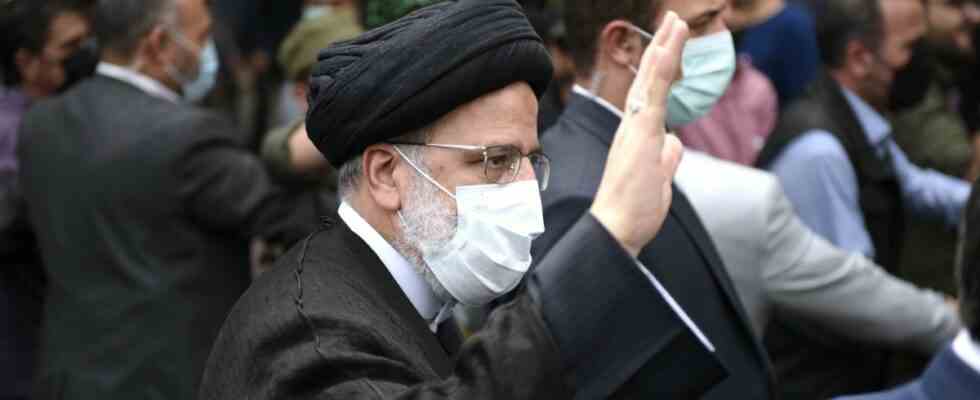US State Department spokesman Ned Price resorted to tortuous statements on Monday when asked about the nuclear deal with Iran. It will remain so as long as a return to the agreement is still in the interests of the United States, he says. However, European and American diplomats warned earlier in the year that unless the 2015 deal was revived by the end of February, Iran’s nuclear program would be so advanced that it would lose its value.
This unofficial deadline has been exceeded by months. The agreement, once hailed as a masterpiece of diplomacy, could die a quiet death. US President Joe Biden would thus miss one of his declared foreign policy goals and would be confronted with a new escalation in the Middle East. The last round of negotiations took place on March 11 in Vienna. Since then, a finished text has been available – actually.
There were already plans to have the foreign ministers come to Vienna to conclude the talks that have been going on since April 2021. But then an intervention by Russia initially prevented the conclusion. Foreign Minister Sergei Lavrov had demanded that Western sanctions over the war of aggression against Ukraine should in no way affect trade relations between Moscow and Tehran. He has since taken that back. But now there is a problem between Iran and the USA over the question of whether the sanctions against the Revolutionary Guards will also be lifted.
This was imposed by then US President Donald Trump in April 2019 because of support for terrorism – not in the context of the nuclear program. Just a few days ago, Israel accused the Revolutionary Guards of planning the assassination of a US general in Germany. In Syria and Iraq, militias they control are attacking US troops and diplomatic facilities. And they attack the closest US allies in the region: Israel, Saudi Arabia, the United Arab Emirates.
Neither side wants to give in
US negotiator Robert Malley had taken the Iranians’ demands to Washington, but the White House is not willing to go along with it. Iran has said it has strictly rejected negotiations on issues outside the nuclear dossier. Opposition in Congress is enormous, including among many Democrats. Important midterm elections for the House of Representatives and Senate are coming up in November. In terms of foreign policy, such a decision would further strain relations with Israel and the oil monarchies in the Gulf.
The regime in Tehran, on the other hand, does not agree to possible compromises. One such proposal was that the US would remove the Revolutionary Guards from the sanctions list, but in return the Islamic Republic would have to guarantee not to attack US facilities in the Middle East or US officials around the world. Tehran has vowed to avenge the January 2020 killing of Revolutionary Guard General Qassim Soleimani by a US drone at Baghdad airport and plans to use military needlesticks to force US troops to withdraw from the region.
US Secretary of State Antony Blinken told the Senate last week that the only way he sees the delisting being delisted is for Iran to “take the necessary steps to justify the delisting.” Iran knows what to do. From Tehran, on the other hand, it is said that the United States is in the picture over Iran’s red lines. The EU negotiator Enrique Mora traveled to Tehran at the end of March to break the deadlock. The issue of the Revolutionary Guards could be settled at a later date, he suggested. If Iran makes other legitimate demands, the US is ready to respond.
Nobody wants to talk about failure yet
Mora is currently waiting for a new appointment in Tehran; Iran celebrates the holiday at the end of Ramadan. The Europeans want to make one last attempt. At the latest when the International Atomic Energy Agency presents its report before the meeting of the Board of Governors in early June, the progress of Iran’s nuclear program will become just as clear as Tehran’s current refusal to fully cooperate with the inspectors.
No one wants to declare the negotiations a failure, but the Europeans in particular are wondering whether Iran still has an interest in the agreement. The country earns well with its oil exports, especially to China. It could probably export twice as much oil as the last 870,000 barrels per day. But because of the Russian attack on Ukraine, they bring in significantly more money. And Iran could find more customers in Asia, for example. In any case, President Ebrahim Raisi says that his government has found other ways to neutralize US sanctions in addition to relaunching the nuclear agreement.

